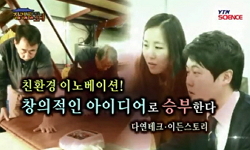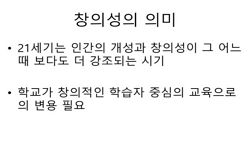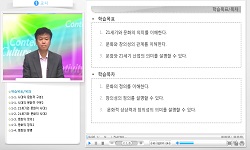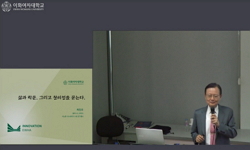1 김종안, "통합적 접근에 기초한 아동의 창의성 측정도구 개발" 성균관대학교 1998
2 최인수, "창의적 성취와 관련된 제 요인들:창의성연구의 최근 모델인 체계모델(Systems Model)을 중심으로" 15 (15): 133-166, 1998
3 김혜숙, "창의적 가정,학교 환경 진단 척도의 수정과 확증적 요인분석" 3 (3): 69-84, 2004
4 김혜숙, "창의성 진단 측정도구의 개발 및 타당화" 13 (13): 269-303, 1999
5 김혜숙, "창의성 구조 모형의 검증" 한국교육심리학회 16 (16): 229-245, 2002
6 김아영, "자아효능감과 학습동기" 한국교육방법학회 16 (16): 1-38, 2004
7 김종백, "자기평가 중심 학습이 초등학생의 쓰기 능력 및 효능감에 미치는 영향" 한국교육심리학회 19 (19): 205-222, 2005
8 곽경선, "다면적 창의성 평가 기준 개발과 적용 연구-과학영역을 중심으로" 한양대학교 대학원 2007
9 홍세희, "구조방정식모형의 적합도지수 선정기준과 그 근거" 19 (19): 191-177, 2000
10 강정하, "과학적 창의성: 지식의 성장으로서의 창의성에 대한 사례연구" 한국교육심리학회 22 (22): 537-562, 2008
11 윤초희, "과학영재의 과학탐구능력 관련 변인에 대한 경로분석: 숙달목표, 자기효능감, 자기조절전략 및탐구수업을 중심으로" 한국교육심리학회 20 (20): 321-339, 2006
12 Zhou, J., "When job dissatisfaction leads to creativity: Encouraging the expression of voice" 44 : 682-696, 2001
13 Mumford, M. D., "Tradeoffs between ideas and structure: Individuals versus group performance in creative problem solving" 35 (35): 1-23, 2001
14 Woodman, "Toward a theory of organizational creativity" 18 : 293-321, 1993
15 Lubart,T.I., "Thinking and problem solving, in Creativity" Academic Press 289-332, 1994
16 Hennessey, B. A., "The role of the environment in creativity, in The nature of creativity" Cambridge University Press 11-38, 1989
17 Dacey, J., "The nurturing parent: How to raise creative, loving, responsible children" Simon & Schuster 1992
18 Torrance,E.P., "The nature of creativity, in The nature of creativity as manisest in its testing" Cambridge University Press 43-75, 1988
19 Simonton, D. K., "The nature of creativity, in Creativity, leadership, and chance" Cambridge University Press 386-427, 1988
20 Walberg,H.J., "The nature of creativity, in Creativity and talent as learning" Cambridge University Press 340-361, 1988
21 Olszewski, P., "The influence of the family environment on the development of talent: A literature review" 11 (11): 6-28, 1987
22 Yeh, Yu-Chu, "The Interactive Influences of Three ecological Systems on R&D Employees' Technological Creativity" 16 (16): 11-25, 2004
23 Hoelter,J.W., "The Analysis of Covariance Structures: Goodness-of-Fit Indices" 11 : 325-344, 1983
24 Gough, H. G., "The Adjective Checklist manual" Consulting Psychologists Press 1983
25 Fleith,D.S., "Teacher and student perceptions of creativity in the classroom environment" 22 (22): 148-153, 2002
26 Csikszentmihalyi, M., "Talented teenagers: The roots of success and failure" Cambridge University Press 1993
27 Tan, A. G., "Singaporean teachers perception of activities useful for fosteing creativity" 35 : 131-148, 2001
28 Bandura,A., "Self-efficacy:The exercise of control" New York:Freeman 1997
29 Bomba, A. K., "Relationship between familial style and the creative potential of preschool children" 68 : 1323-1326, 1991
30 Cropey, A. J., "Programs and strategies for nurturing creativity, in International Handbook of Giftedness and Talent" Elsevier Science Ltd 485-495, 2000
31 Amabile,T.M., "Personality processes and Individual Difference. Social psychology of Creativity: A Consensual Assessment Technique" 43 (43): 997-1013, 1982
32 Runco, M. A., "Personal explicit theories of creativity" 32 : 1-17, 1989
33 Michel, M., "Mother-child relationships and creativity" 4 (4): 281-286, 1991
34 Anderson, N. R., "Measuring climate for work group innovation: Development and validation of the team climate inventory" 19 : 235-258, 1998
35 Proctor, "Measuring Cognitive and Dispositional Characteristics of Creativity in Elementary Students" 4 : 421-429, 2004
36 김기영, "LISREL(SIMPLIS)를 이용한 구조방정식모형의 분석" 자유아카데미 2001
37 Sternberg, R. J., "Investing in Creativity" 1996
38 Finke,R.A., "Insight and pre- inventive Forms, in The nature of insight, in Sternberg and Davidson" A Bradford Book the MIT press 255-280, 1995
39 Choi,J.N., "Individual and contextual predictors of creative performance: The Mediating role of psychological processes" 16 (16): 187-199, 2004
40 Woodman, R. W., "Individual Differences in Creativity An Inter- actionist Perspective, in Handbook of creativity" Plenum Press 77-92, 1989
41 Soh,K., "Indexing creativity fosteing teacher behavior: A preliminary validation study" 34 : 11-134, 2000
42 Davis,G.A., "How Do You Think? Form E.copyright" University of Wisconsin 1977
43 Brown, A. L., "Handbook of creativity in Creativity: What are we to measure, in Handbook of creativity" Plenum Press 3-36, 1989
44 Siau,K.L., "Group creativity and technology" 29 : 201-216, 1988
45 Cropley, A. J., "Fostering creativity in the classroom: General principles, in Creativity research handbook. vol. 1" Hampton Press 83-114, 1997
46 Zhou, "Enhancing creative performance: Effects of expected developmental assessment strategies and creative personality" 35 (35): 151-167, 2001
47 Oldham, G. R., "Employee creativity:Personal and contextual factors at work" 39 : 607-634, 1996
48 Sternberg, R. J., "Defying the Crowd. Cultivating Creativity in a culture of conformity" The Free press 1995
49 Dudek, S. Z., "Cumulative and proximal influences on the social environment and children's creaive potential" 154 : 487-499, 1993
50 Feldhusen,J.F., "Creativity:A knowledge based,meta cognitive skill,and personality factors.Journal of Creative" 29 : 255-268, 1995
51 Simonton,D.K., "Creativity: Cognition, personal, developmental, and social aspects" 55 : 151-158, 2000
52 Donnelly,B., "Creativity in the workplace" 20 (20): 4-8, 1994
53 Christiaans,H.C.M., "Creativity as a design criterion" 14 (14): 41-54, 2002
54 Dollinger, "Creativity and Openness; Further validation of Two Creative product Measures" 16 (16): 35-47, 2004
55 Pollick, M. F., "Creativity Styles of supervising Managers" 31 (31): 260-271, 1997
56 Csikszentmihalyi, M., "Creativity" Harper Collins 1996
57 Finke, R. A., "Creative cognition; Theory, research, and applications" MIT Press 1992
58 Amabile, T. M., "Assessing the work environment for creativity.Academy of Management" 39 : 1154-1184, 1996
59 Feldhusen, J. F., "Assessing and accessing creativity: An integrative review of theory, research, and development" 8 : 231-247, 1995
60 Osborn,A.F., "Applied Imagination. Principles and procedures of Creative Problem - solving" 1963
61 Bronfenbrenner,U., "Annals of child development , in Ecology systems theory" 6 : 187-251, 1989
62 Amabile,T.M., "A model of creativity and innovation in organizations" 10 : 123-167, 1988
63 Gough,H.G., "A creative personality scale for the adjective checklist" 37 (37): 1398-1405, 1979
64 Hocevar, D., "A Taxonomy and Critique of Measurements used in the study of Creativity, in Handbook of creativity" Plenum Press 53-76, 1989






 DBpia
DBpia








